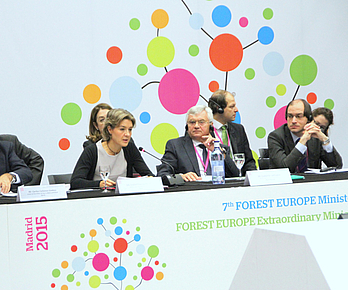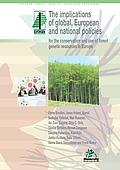Policies and the conservation and use of forest genetic resources

The past two decades have seen the adoption of many policy instruments designed to foster sustainable forest management, in addition to several more that have an impact on the forestry sector. These policies often have consequences for the conservation of forest genetic resources (FGR) even if they do not directly address the topic. Indeed, one over-arching concern is that although many policies have an impact on the conservation and use of FGR, they often do not spell that out directly. Instead, FGR are supposed to be subsumed in the wording “biological diversity”, implying that all levels (ecosystems as well as interspecific and intraspecific diversity) are included by default. However, most of the time, biological diversity refers only to ecosystems.
To face this background and challenge, a EUFORGEN working group was asked to study the most relevant policies at national, regional and international levels to gain a better understanding on the impacts of policies on the conservation and use of FGR.
Given the importance of forests in people’s lives and in the economic sector, and the ways in which policies concerned with agriculture, energy, climate, trade and environment affect forestry, the working group cautioned that too often policies in these sectors are formulated without the benefit of forestry expertise. A challenge for the forestry sector at this time of rapid change is to follow and influence these policies without necessarily having a seat at the table. By the same token, policy-makers may not be sufficiently aware that international agreements, such as the Convention on Biological Diversity, create legally-binding commitments to be implemented through national strategies and programmes. Forestry professionals need to raise awareness of these obligations and contribute to their implementation.
The working group welcomed the 2014 release of the State of the World’s Forest Genetic Resources (SoW-FGR) report by FAO. The findings of the report provide a useful baseline and have already been used to develop the Global Plan of Action on Forest Genetic Resources (GPA-FGR), adopted by the FAO Conference in 2013. The working group urged all European countries to contribute to the implementation of the GPA-FGR.
 | The implications of global, European and national policies for the conservation and use of forest genetic resources in EuropeThe past two decades have seen the adoption of many policy instruments designed to foster… |
Download |
